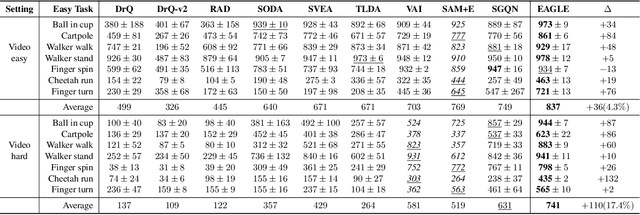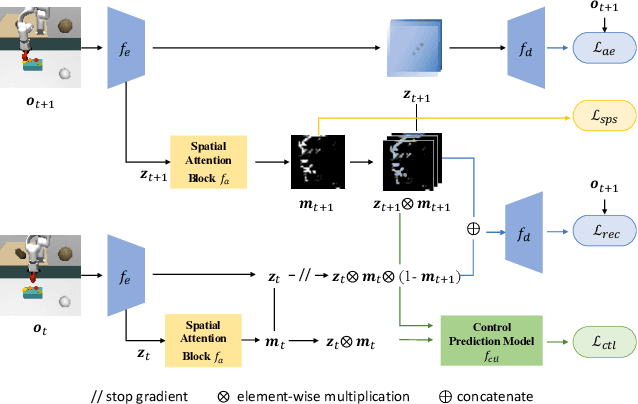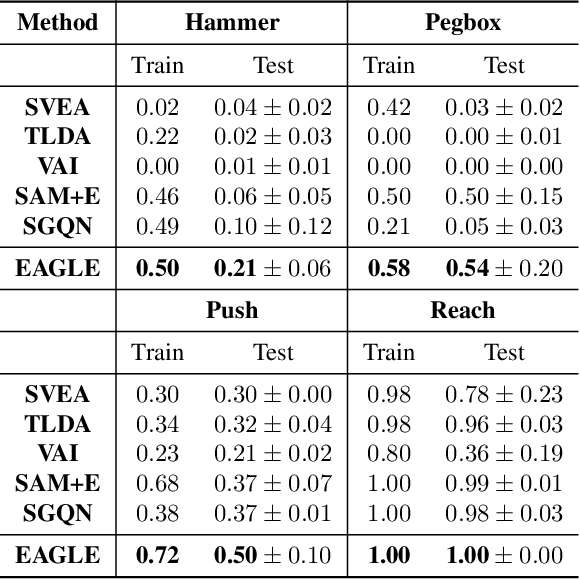An Efficient Generalizable Framework for Visuomotor Policies via Control-aware Augmentation and Privilege-guided Distillation
Paper and Code
Jan 17, 2024



Visuomotor policies, which learn control mechanisms directly from high-dimensional visual observations, confront challenges in adapting to new environments with intricate visual variations. Data augmentation emerges as a promising method for bridging these generalization gaps by enriching data variety. However, straightforwardly augmenting the entire observation shall impose excessive burdens on policy learning and may even result in performance degradation. In this paper, we propose to improve the generalization ability of visuomotor policies as well as preserve training stability from two aspects: 1) We learn a control-aware mask through a self-supervised reconstruction task with three auxiliary losses and then apply strong augmentation only to those control-irrelevant regions based on the mask to reduce the generalization gaps. 2) To address training instability issues prevalent in visual reinforcement learning (RL), we distill the knowledge from a pretrained RL expert processing low-level environment states, to the student visuomotor policy. The policy is subsequently deployed to unseen environments without any further finetuning. We conducted comparison and ablation studies across various benchmarks: the DMControl Generalization Benchmark (DMC-GB), the enhanced Robot Manipulation Distraction Benchmark (RMDB), and a specialized long-horizontal drawer-opening robotic task. The extensive experimental results well demonstrate the effectiveness of our method, e.g., showing a 17\% improvement over previous methods in the video-hard setting of DMC-GB.
 Add to Chrome
Add to Chrome Add to Firefox
Add to Firefox Add to Edge
Add to Edge